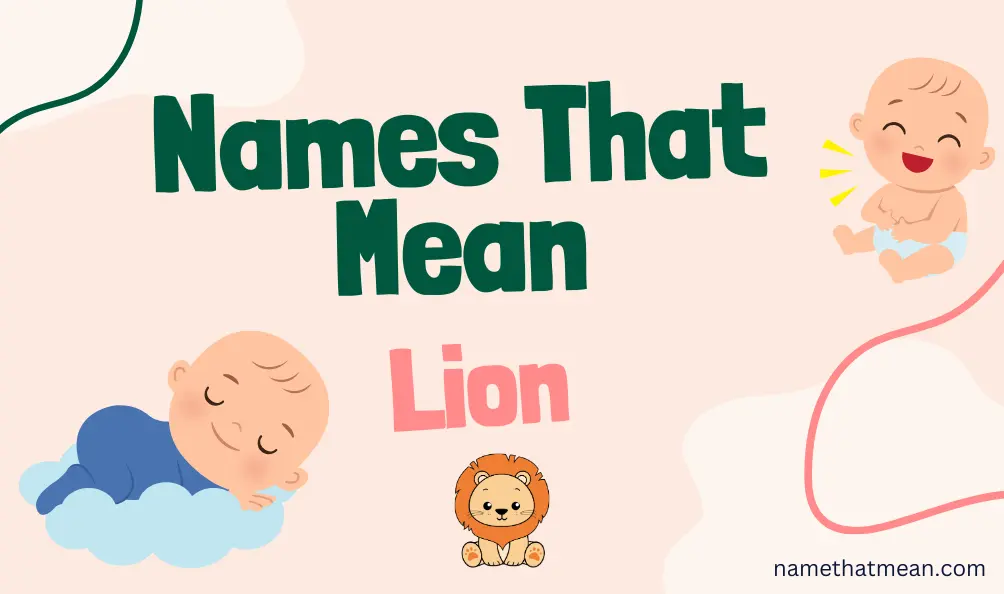Introduction to the Name That Means Lioness NYT
If you’ve ever found yourself stumped by the New York Times crossword puzzle, you’re not alone. One clue that often piques curiosity is “Name That Means Lioness NYT.” It taps into a rich tapestry of history and culture while challenging your wordplay skills. But what does it really mean? And how can understanding its origins enhance your crossword-solving prowess? Let’s dive into the fascinating world behind this intriguing name and discover some tips along the way!
The Origins of the Lioness Name
The name that means lioness often traces back to ancient cultures. In many societies, the lioness symbolizes strength and courage.
In African cultures, for instance, lions are revered as majestic creatures. They embody leadership within their pride. This reverence extends into names reflecting these powerful qualities.
Similarly, in Hebrew tradition, the name “Ariel” translates to “lion of God.” It carries an air of nobility and bravery associated with a lioness defending her young.
Names tied to this theme can be found across various languages too. For example, “Leona” directly connects to the Latin term for lioness. Each variation holds its unique charm while honoring this fierce symbol of femininity.
Many parents choose these names not just for their meanings but also for their resonance in popular culture and literature. The allure of a strong character captivates imaginations everywhere.
Famous Lioness Namesakes
Famous lioness namesakes have carved their place in culture and history. Take the breathtaking Nala from Disney’s “The Lion King.” Her character is not only a fierce companion to Simba but also embodies strength and independence.
In literature, we find Aslan’s courageous counterpart, the lioness named Reepicheep in C.
S. Lewis’s “Chronicles of Narnia.” Though she plays a supporting role, her spirit shines through vividly.
Additionally, real-life figures often inspire such names. For example, African activist Wangari Maathai was affectionately dubbed “Lioness of Green” for her environmental efforts and unwavering resolve.
These namesakes resonate across generations, symbolizing bravery and grace. Their impact stretches beyond mere stories; they become archetypes influencing countless narratives worldwide.
Solving the NYT Crossword Clue for
When you encounter the NYT crossword clue for “Name That Means Lioness,” it can feel like a puzzle within a puzzle. The challenge lies not just in knowing names but understanding their origins and meanings.
Think about names that evoke strength and grace. Consider popular options such as “Ayla,” which carries connotations of light or moon, yet stands strong in its own right. Alternatively, “Leona” is derived from the Latin word for lioness—bold and fierce.
To crack this particular clue, don’t hesitate to explore related themes. Contextual clues may guide your thinking toward animal associations or cultural references linked to femininity.
Use online resources or etymology websites to deepen your knowledge of names tied to lions and lionesses. Each piece of information can shine like a beacon when piecing together the perfect answer on game day!
Tips and Tricks for Solving Crossword Puzzles
Crossword puzzles can be a delightful challenge. Start by scanning the entire grid before diving in. This gives you an idea of any obvious answers.
Focus on the clues you know first. Filling in those easier words can provide helpful letters for trickier ones later.
Don’t hesitate to use pencil and eraser if you’re working on paper. It’s all about finding what fits best without fear of making mistakes.
Pay attention to common crossword conventions like abbreviations, plurals, or wordplay hints. Those little quirks often hold the key to tricky clues.
For digital solvers, many apps offer helpful features such as checkboxes or hints—use them wisely!
Practice makes perfect; tackle different puzzle styles regularly to hone your skills over time. You’ll grow more confident with each completed grid.
Other Animal-Themed Names in Crosswords
Crossword puzzles often feature a delightful array of animal-themed names. These can range from beloved pets to majestic wildlife, each bringing its own charm.
For instance, the name “Leo,” which means lion, frequently pops up in clues and grids. It’s short and catchy—a favorite among crossword aficionados.
Then there’s “Fawn.” This gentle name is not only a nod to youthful deer but also adds an elegant touch to puzzle-solving. Its softness contrasts with fiercer animal names, creating diversity within the grid.
Don’t overlook “Raven.” The mysterious bird has captured literary imaginations for centuries. It evokes intrigue and depth, making it a popular choice for wordplay challenges.
As you solve your next puzzle, keep an eye out for these captivating animal-themed names. They enrich the experience and add layers of meaning to your search for answers.
Conclusion and Final Thoughts
Names have power, and those that evoke the majesty of a lioness carry an even deeper significance. Whether you’re deciphering clues in the NYT crossword or simply exploring unique names, understanding their origins adds richness to our linguistic journey.
Famous figures who bear names meaning “lioness” remind us of strength and courage. From literature to pop culture, these characters inspire resilience.
Crossword puzzles are more than just brain teasers; they connect us with language, history, and culture. As you dive into your next puzzle hunt for the lioness name clue, remember there’s a world behind each letter.
So keep exploring animal-themed names too! They add vibrancy not only to crosswords but also to everyday conversations. Each time you encounter such a name—be it on the page or in life—appreciate its story and what it brings to your vocabulary.
Whether you’re solving crosswords for leisure or honing your skills as an enthusiast, enjoy every moment spent unraveling words. After all, each puzzle piece fits into something much larger—a tapestry of language woven through history and creativity.



